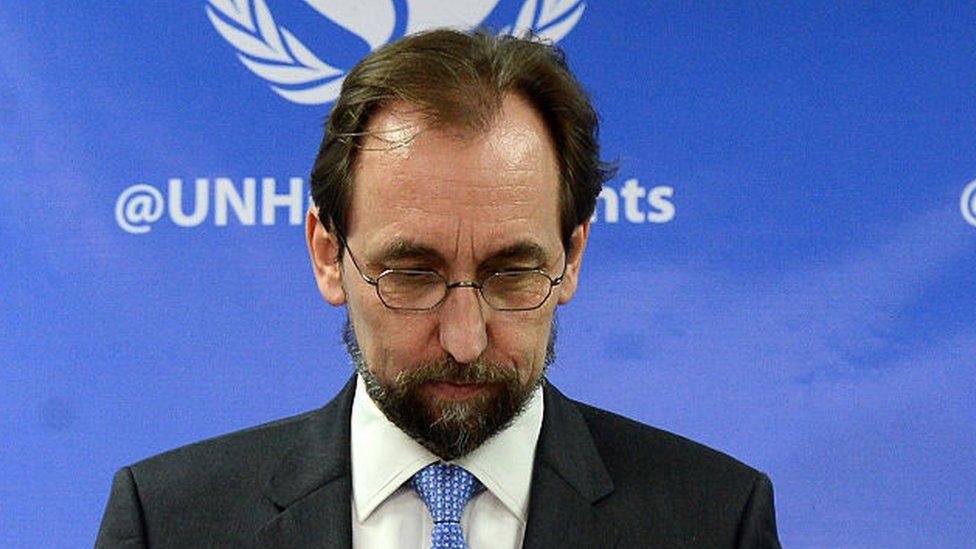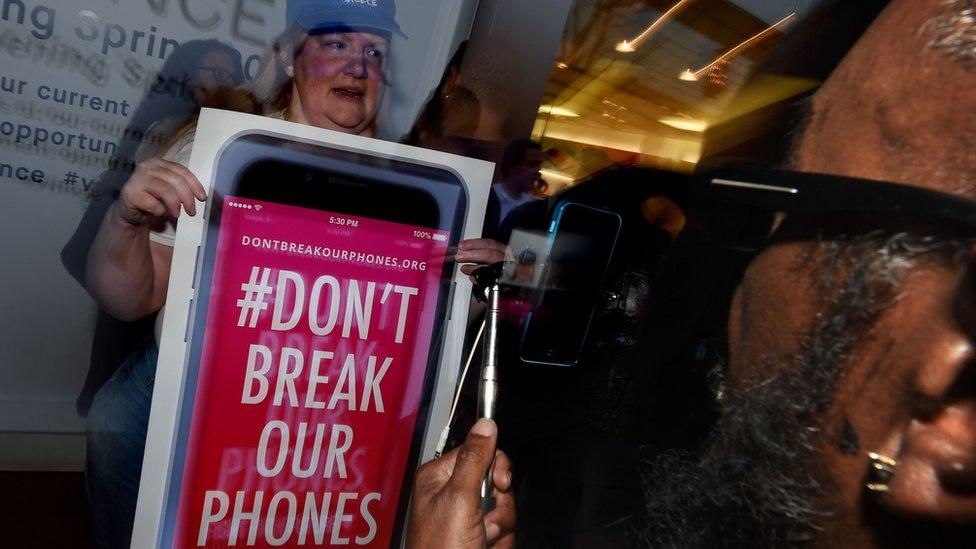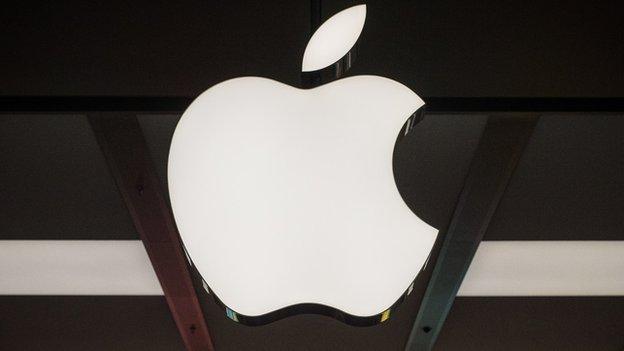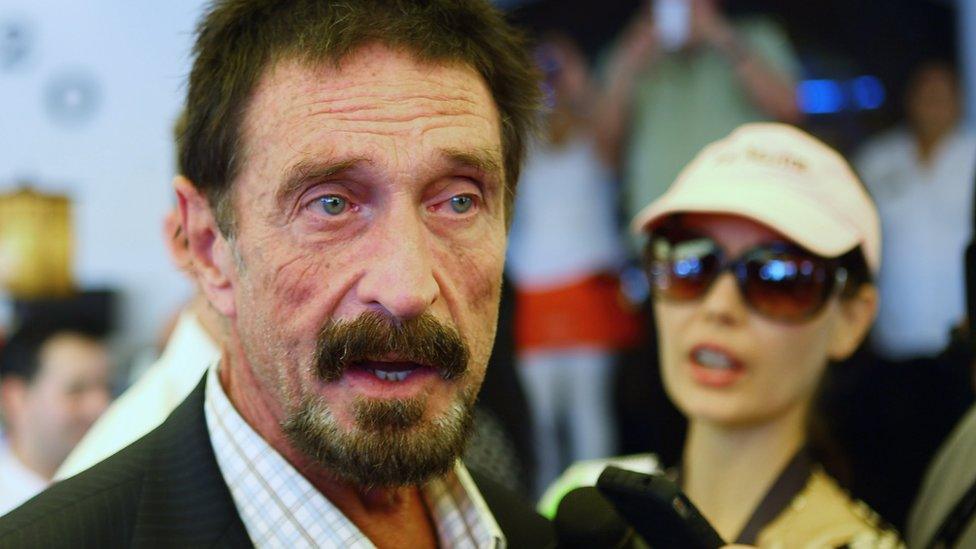UN human rights chief backs Apple in FBI encryption row
- Published

Prince Al Hussein said there were "other ways" to investigate the gunman's connections.
Zeid Ra'ad Al Hussein, high commissioner for human rights at the United Nations, has warned that a "Pandora's box" will be opened if Apple co-operates with the FBI.
The FBI has ordered the tech giant to assist it with unlocking an iPhone used by San Bernadino gunman Syed Farook.
Prince Al Hussein said the law enforcement agency "deserves everyone's full support" in its investigation.
However, encryption was essential in the interests of freedom, he added.
"There are many ways to investigate whether or not these killers had accomplices besides forcing Apple to create software to undermine the security features of their own phones," he said in a statement, external.
"It is potentially a gift to authoritarian regimes, as well as to criminal hackers.
"Encryption and anonymity are needed as enablers of both freedom of expression and opinion, and the right to privacy. Without encryption tools, lives may be endangered."
Syed Rizwan Farook and his wife Tashfeen Malik killed 14 people and left 22 injured when they opened fire at his place of work in California in December 2015.
The FBI has asked Apple to disable a feature that means the data on an iPhone is erased after 10 incorrect attempts at the four-digit password. It also wants to be able to run software that could go through the 10,000 possible combinations to unlock the gunman's handset quickly.
Apple says agreeing to the request would set "a dangerous precedent", external.
Tech support
A number of major tech firms have also pledged their support for Apple's refusal to circumvent its own security.
Two groups of tech giants have now filed an amicus brief, which allows parties not directly involved in a court case, but who feel they are affected by it, to give their view.
They include Twitter, AirBnB, eBay, LinkedIn, Reddit, Amazon, Microsoft, Snapchat and Yahoo.
However, a lawyer representing a group of Farook's surviving victims said he would file similar legal paperwork on their behalf in support of the FBI.
"They were targeted by terrorists, and they need to know why, how this could happen," said Stephen Larson, a former judge.
He declined to say how many of the victims he was representing, but did add that he would not be charging them a fee.
- Published4 March 2016

- Published17 February 2016

- Published19 February 2016
